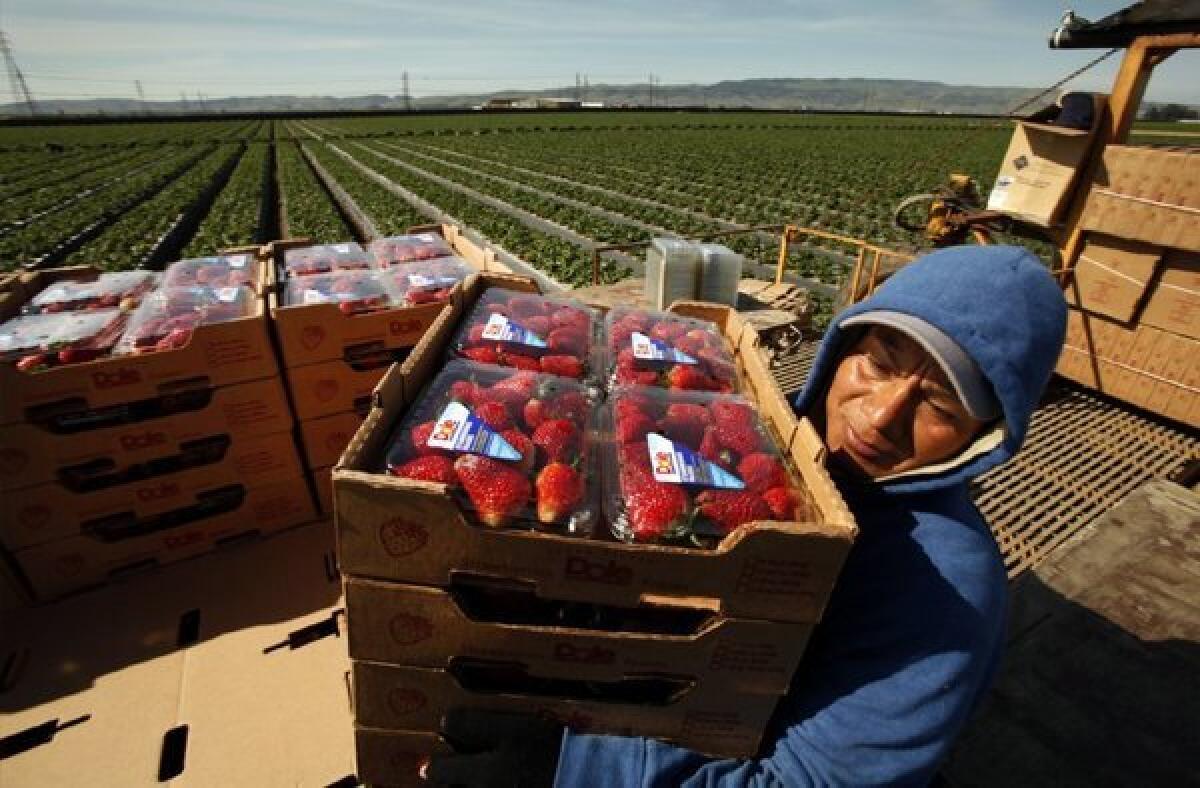CEO David Murdock to buy Dole Food for $13.50 a share

David H. Murdock, chairman and chief executive of Dole Food Co. in Westlake Village, is taking the produce company private in a deal valued at $1.21 billion.
The Los Angeles billionaire will pay $13.50 a share in cash for all the outstanding shares of common stock he doesn’t already hold. As of June, he and his family members owned nearly 40% of Dole shares.
The purchase, months in the making, comes after Murdock made a $12-a-share proposal in June. The transaction represents a 32% premium over the $10.20-a-share price at which the stock was trading just before the negotiations first became public.
The $13.50 sale price is 5.4% higher than Friday’s $12.81-a-share close.
The arrangement places the total enterprise value of Dole, plus debt, at $1.6 billion, according to the company. The business’ board, sans Murdock, unanimously approved the deal, which now needs to be cleared by stockholders and regulators.
Murdock will fund the purchase with his own cash and equity, aided by financing from Deutsche Bank, Bank of America and the Bank of Nova Scotia.
Dole has the option of using a so-called “go-shop” period, in which it can spend 30 days weighing other offers.
Otherwise, the company said the deal is expected to close in the fourth quarter.
Murdock, a mogul who recently sold the Hawaiian island of Lanai to Oracle honcho Larry Ellison, first took Dole private more than a decade ago before bringing it public in 2009.
This spring, Dole finalized the sale of its huge global packaged foods and Asia fresh foods segments to a Japanese firm for nearly $1.7 billion.
In morning trading in New York, Dole was up 5%, or 65 cents, to $13.46 a share.
ALSO:
Dole Food is focusing on low-hanging fresh fruit
Dole CEO Murdock makes $1.1-billion takeover bid
Dole sells businesses to Japanese firm Itochu for $1.7 billion
Follow Tiffany Hsu on Twitter at @tiffhsulatimes
More to Read
Inside the business of entertainment
The Wide Shot brings you news, analysis and insights on everything from streaming wars to production — and what it all means for the future.
You may occasionally receive promotional content from the Los Angeles Times.











